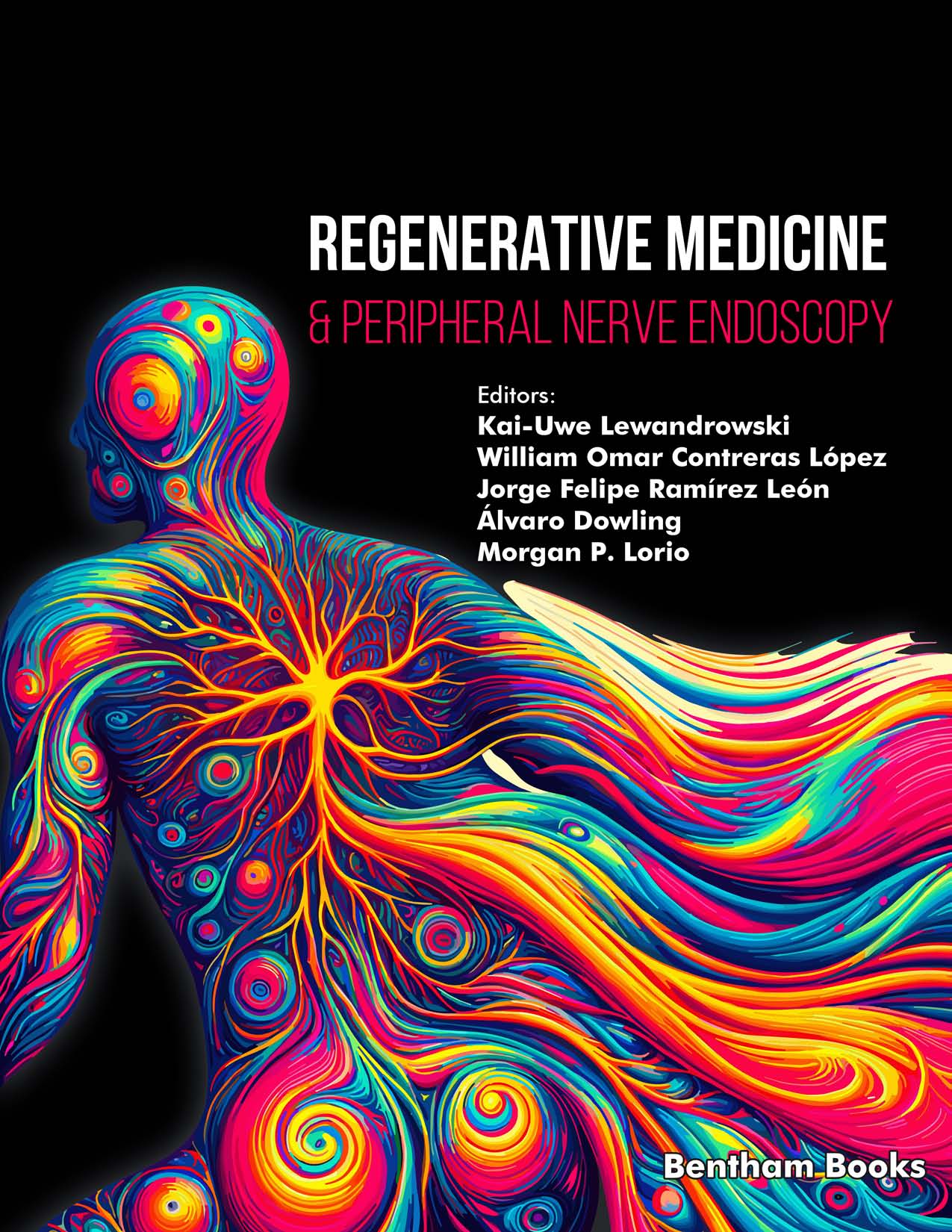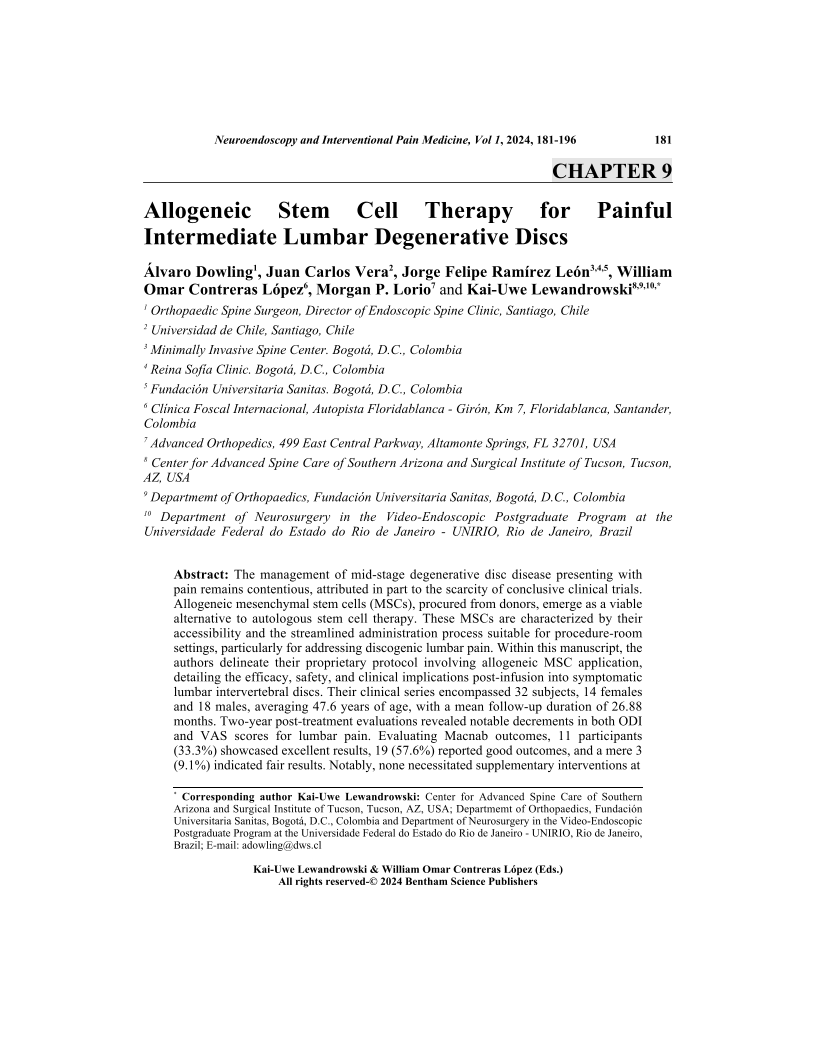Allogeneic Stem Cell Therapy for Painful Intermediate Lumbar Degenerative Discs

- Authors: lvaro Dowling1, Juan Carlos Vera2, Jorge Felipe Ramírez León3, William Omar Contreras López4, Morgan P. Lorio5, Kai-Uwe Lewandrowski6
-
View Affiliations Hide Affiliations1 Orthopaedic Spine Surgeon, Director of Endoscopic Spine Clinic, Santiago, Chile 2 Universidad de Chile, Santiago, Chile 3 Minimally Invasive Spine Center. Bogot, D.C., Colombia 4 Clnica Foscal Internacional, Autopista Floridablanca Girn, Km 7, Floridablanca, Santander, Colombia 5 Advanced Orthopedics, 499 East Central Parkway, Altamonte Springs, FL 32701, USA 6 Center for Advanced Spine Care of Southern Arizona and Surgical Institute of Tucson, Tucson, AZ, USA
- Source: Regenerative Medicine & Peripheral Nerve Endoscopy , pp 181-196
- Publication Date: August 2024
- Language: English
Allogeneic Stem Cell Therapy for Painful Intermediate Lumbar Degenerative Discs, Page 1 of 1
< Previous page | Next page > /docserver/preview/fulltext/9789815274462/chapter-9-1.gif
The management of mid-stage degenerative disc disease presenting with pain remains contentious, attributed in part to the scarcity of conclusive clinical trials. Allogeneic mesenchymal stem cells (MSCs), procured from donors, emerge as a viable alternative to autologous stem cell therapy. These MSCs are characterized by their accessibility and the streamlined administration process suitable for procedure-room settings, particularly for addressing discogenic lumbar pain. Within this manuscript, the authors delineate their proprietary protocol involving allogeneic MSC application, detailing the efficacy, safety, and clinical implications post-infusion into symptomatic lumbar intervertebral discs. Their clinical series encompassed 32 subjects, 14 females and 18 males, averaging 47.6 years of age, with a mean follow-up duration of 26.88 months. Two-year post-treatment evaluations revealed notable decrements in both ODI and VAS scores for lumbar pain. Evaluating Macnab outcomes, 11 participants (33.3%) showcased excellent results, 19 (57.6%) reported good outcomes, and a mere 3 (9.1%) indicated fair results. Notably, none necessitated supplementary interventions at the MSC-treated disc level. Despite the study's constraints, such as its observational nature, potential selection and hindsight biases, and modest participant count, the authors' findings substantiate the potential of intradiscal allogeneic MSC injections in managing mid-stage painful degenerative disc afflictions. To fortify these preliminary insights, future research endeavors should encompass a more regimented structure, potentially incorporating a placebo cohort or a natural progression study group.
-
From This Site
/content/books/9789815274462.chapter-9dcterms_subject,pub_keyword-contentType:Journal -contentType:Figure -contentType:Table -contentType:SupplementaryData105

